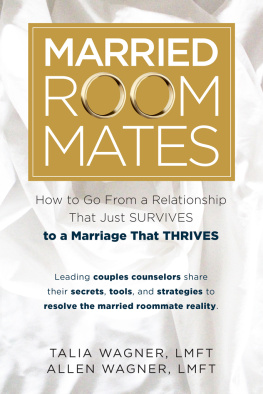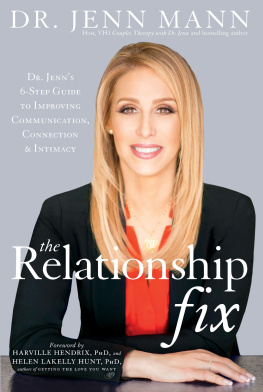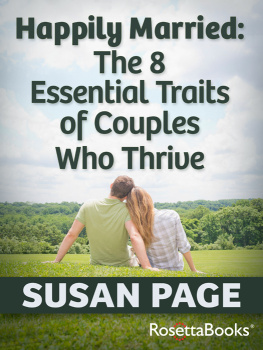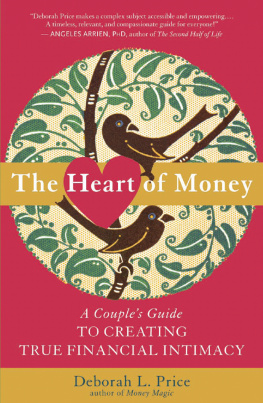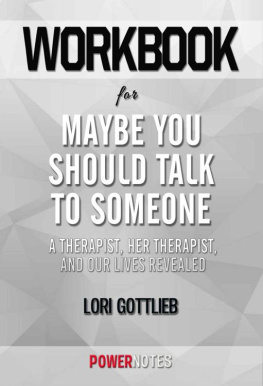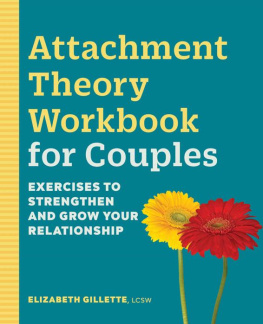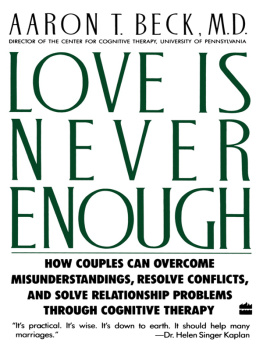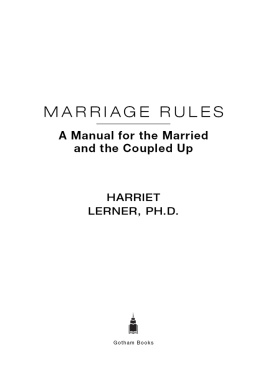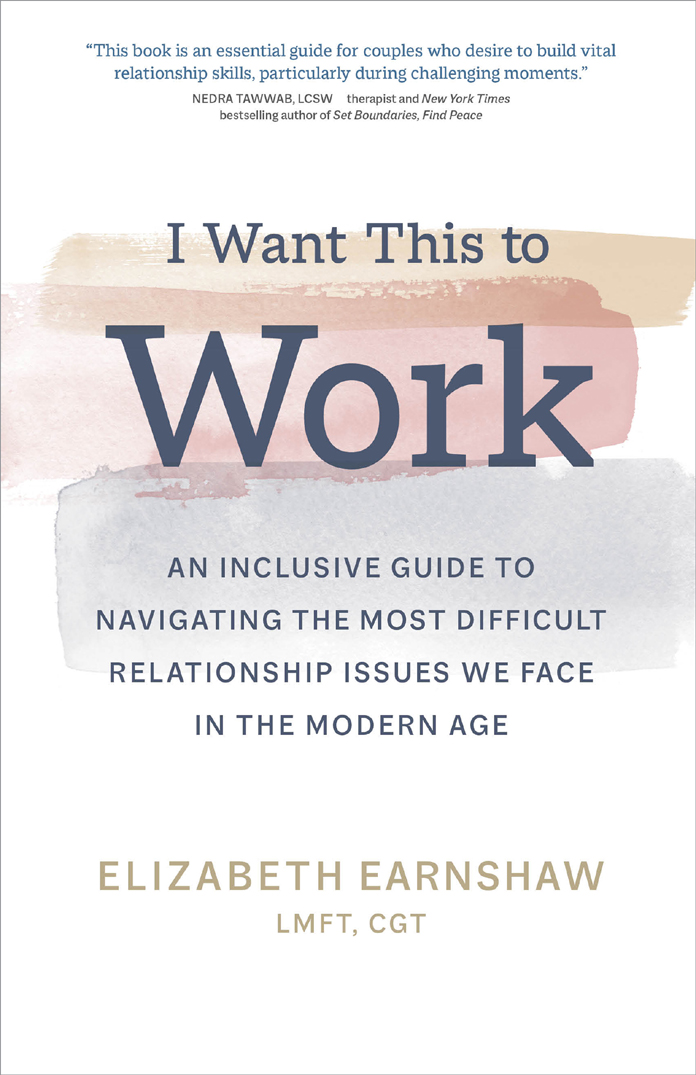Contents
Guide
Page List
For the people who have taught me how to love: my parents, my husband, and my son
Contents
Introduction
I just really want this to work, Raquel says to me. For more than a decade Raquel and Alberto have been navigating the challenges of the modern relationship. They both hoped for a relationship that would help them reach their goals, create meaning, and be a source of romance and love. As theyve navigated the stress of the outside world, parenting, and their career ambitions, theyve lost themselves and, in many ways, their relationship. Their relationship has been burdened with stress, overwhelm, and hurtful experiences that havent been resolved. Add on top of that the time and energy suck of technology: they both feel disappointed by how much more time they spend on their devices than with each other.
They know they love each other, but can love overcome the anger and resentment? They wonder, Is my partner there for me? Do they respect me? Will they respond to my needs? And Can I still be here for myself? Can I respect myself? Can I respond to my own needs?
Navigating the modern relationship can be fulfilling and meaningful. In our new relationship style, we arent just meeting each others basic and utilitarian needswe want more. With that, though, comes a complex renegotiating of what a committed partnership looks like. In the past, relationships were formed for parental, financial, or religious reasons, but couples now are seeking relationships that provide them emotional depth and act as containers for personal growth and support. When people in their twenties were surveyed about whats most important in a relationship, 94 percent of them said they want a spouse that is their soul mate first and foremost. Our roles in relationships are less defined than they were in the past, our lives are more complex and busy, and we want more from our relationships than we ever have before. This leads me to believe that more than ever we need to learn to be exceptional communicators. This takes a mix of understanding the issues we are facing, having awareness of ourselves, and knowing the skills that help our messages to be received.
Raquel and Alberto, like most people, hope that through the process of working on their relationship they can build something that addresses the reality of life while still fulfilling the need of building something connected and meaningfula relationship that rests on a foundation of respect, responsiveness, and reliability.
Like most committed relationships, Raquels partnership with Alberto started from a place of hope, love, and excitement. Isnt that the truth for most people who choose to commit to each other? We certainly dont go into a relationship thinking that one day we might end up unhappy. Looking back, she realizes that many things didnt feel quite right, even in the beginning. Of course, hindsight is always 20/20, and Raquel can see that she ignored some problems in order to keep her relationship going. She has felt it necessary to be quiet about a lot of the issues just to keep the peace.
Over the years it has become more difficult for Raquel to pretend that its all okaythat she doesnt have needs, or that she hasnt missed out on goals or that she doesnt feel lonely. She has spent a long time feeling unhappy in this relationship, and Raquel is ready for it to change. She really wants it to work, but not by being the only one to put in the work. Raquel hopes that within her partnership, she can find a way to cocreate a relationship with more mutualitymore respect for each other, more reliability between them, and more responsiveness to each others needs. A relationship that supports the individual growth of each partner while fostering relational security between them.
Like Raquel, many of us live within relationships that at best feel inadequate and at worst feel unbearable. We stay in them because we get caught up in the concept of making it work. Unfortunately, these relationships dont honor our needs, feelings, experiences, goals, and dreams. They become a catalyst for loss of the self, when really they should be a catalyst for growth.
LETS LOOK AT LOVE
I define modern love as the act of honoring BOTH people in a relationship. It is not love if you do not honor the self, and it is not love if you do not honor the other.
Many people believe that the only way we can get our relationships to work is to abandon, minimize, lose, or betray important aspects of the self. We do this by shapeshifting, making ourselves small, agreeing in order to keep the peace, and ignoring personal needs, boundaries, and desires. By putting up with harmful communication. By taking on the burdens of another as if they were our own. By enabling. By being codependent. All of this leads to a sense of self-loss.
Sadly, self-loss and relational loss are two sides of the same coin: we betray or abandon those we love the most when there is nothing left within us. Rather than being open and transparent, we communicate without respect for ourselves or our partner. Or, more commonly, our conversations start to focus on who is right and who is wrong, and as a result we dont communicate at all. We lack respect for each other, and we start to wonder if we even have respect for ourselves.
I have met with so many couples who say, I want this to work, and they mean it. But they dont know where to start. Sometimes, trying to make it work leads to fusion, which is when our decisions, actions, and feelings of self-worth depend on what our partner thinks or how we predict our partner will react. Fusion is a form of self-loss. At the other end of the spectrum, to preserve our sense of self, we may disengage from our partner, emotionally cutting ourselves off from the relationship.
When couples say, I want this to work, they are often frustrated that the only way they know how to make it work is to avoid conflict or enter it unfairly, and the only way to do that is to harm themselves or to harm the other person. This book will teach you another wayone that creates connection, respect, and resolve for both of you.
ITS ABOUT US
Plenty of studies have shown that strong relationships are the greatest predictor of happiness and life satisfaction. Some of the fantasies we have about relationships making us happy do actually hold up in reality.
For example, social connection, in particular the ability to confide in another person and be with loved ones, was found to be the strongest protective factor for depression.
The loss of a relationship can lead to emotional, social, and economic distress.
On the other hand, we know that staying in a relationship that asks us to lose ourselves in order to make it work is also problematic. Self-loss can lead to decreased self-esteem, decreased possibilities for intimacy, and vulnerability to depression.
Ultimately, both self-loss and relationship loss can lead to dysphoria. Its no wonder that its hard to decide, Should I stay, or should I go?
SHOWING UP
Many of us have been raised on the binary: either totally enmeshed in relationships or completely independent and autonomous. We say we want to be in relationships, but we dont think or behave relationally. We may ignore things that are problems for our partner, or we may sacrifice ourselves for their desires. Relational thinking requires you to examine how to show up fully as yourself while helping your partner to do the same. This is a new way of seeing relationships, and it takes fresh awareness, a shift in mindset, and skills that many of us were not taught. As we build relational and self-awareness, we can begin to shift the way we think so that we can open ourselves to the possibility of a different relationship. And as we do this, we need to practice building integral skills for relationship health.


